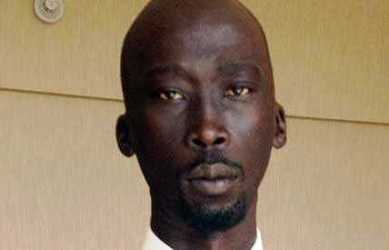Resolve outstanding issues before new government: SPLM-IO
October 9, 2019 (KHARTOUM) – South Sudan’s armed opposition faction (SPLM-IO) has urged parties that signed the peace agreement to resolve all outstanding issues before the formation of a Transitional Government of National Unity (TGoNU) on November 12.

“The Sudan People’s Liberation Movement-in-opposition (SPLM-IO) would like to state for the record that a coerced peace will never prevail in South Sudan and forming the transitional government of national unity under a false pretext that we shall discuss the outstanding issues as a unity government is a mockery of justice,” said Mabior.
He said outstanding issues include implementation of the transitional security arrangements and the number and boundaries of states.
Mabior, however, stressed that the implementation of the revitalized peace agreement be government by the transitional constitution.
According to the peace accord, the National Constitutional Amendment Committee (NCAC) is supposed to draft and complete the constitutional bill within 21 days upon the agreement’s signing.
The NCAC was established under Chapter 1 Article 13 of the Agreement on Resolution of the Conflict in South Sudan (ARCSS).
Meanwhile, the armed opposition movement said it would continue observing the ceasefire agreement agreed upon by all the warring parties, stressing that this should not be viewed as a “weakness”.
“In light of the recent statements by President Salva Kiir at the prayers in J1, the ominously similar statements of the UN Special Envoy, the unserious utterances of the Minister of Information of President Salva Kiir and the counter insurgency tactics of the regime’s security organs, a clear indication that peace has collapsed,” said Mabior.
“The SPLM/SPLA (IO) shall not be responsible for the obvious outcome and we reserve the natural right of self-defense,” he stressed.
South Sudan plunged into civil war in December 2013 when President Salva Kiir accused the country’s former vice-president Riek Machar of an attempted coup.
In September last year, South Sudan’s arch-rivals signed a revitalized peace agreement to end the country’s civil war that has killed tens of thousands of people and displaced more than 2 million.
The rival parties, in May, agreed on a six-month extension to implement next steps in the fragile peace agreement. The latest extension came after the main opposition group threatened to boycott formation of a unity government on May 12.
(ST)
